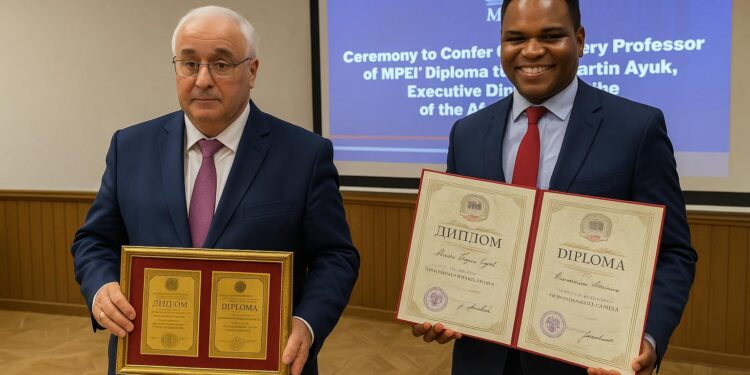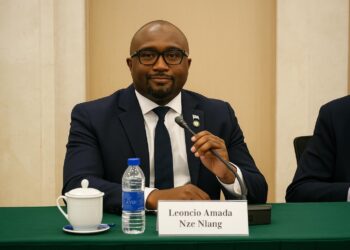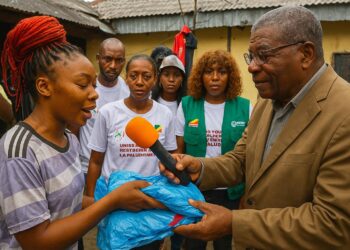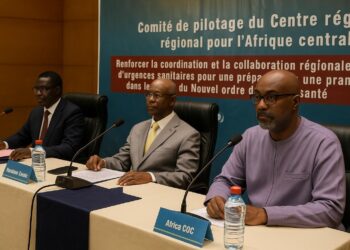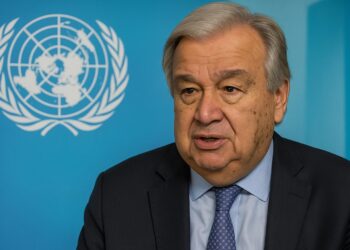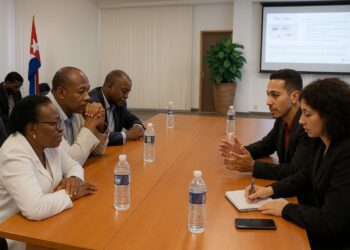Honorary Professorship Recognises Energy Advocacy
During the recent Russian Energy Week, Executive Chairman of the African Energy Chamber, NJ Ayuk, received the title of Honorary Professor from Moscow Power Engineering Institute. The accolade rewards nearly two decades of advocacy for Africa’s right to monetise hydrocarbons while pursuing an inclusive, technology-driven transition agenda forward.
Faculty representatives highlighted Ayuk’s capacity to build bridges between capitals, investors and communities, portraying him as an interlocutor who blends legal expertise with commercial pragmatism. The ceremony, held in the Institute’s central hall, drew scholars studying gas turbines, grid resilience and low-carbon fuels destined for emerging markets worldwide.
The distinction underlines Moscow’s growing interest in African hydrocarbons, metals and power networks. Russian state utilities and private service companies are expanding feasibility studies on floating LNG, modular refineries and mini-hydro assets from Pointe-Noire to Dar es Salaam, often proposing rouble-denominated credit lines backed by engineering deliverables internationally.
For Ayuk, the title is less personal than strategic. Framed by speeches on ‘energy justice’, he reiterated that industrialisation, not mere extraction, transforms poverty indicators. He argued that African nations must convert gas into fertiliser, steel and power domestically so that export receipts complement, rather than substitute, diversified growth.
Implications for Africa’s Gas Value Chain
Ayuk’s comments resonate with policy debates in Brazzaville, where authorities target 70 % electrification by 2030 and investigate petrochemical clusters near the Atlantic coast. Congo-Brazzaville already supplies 2.7 million tonnes of LNG annually; officials now assess whether incremental compression trains could double output while ring-fencing molecules for domestic plants tomorrow.
Industry executives interviewed after the Moscow ceremony suggested that Russian turbine manufacturers may licence high-efficiency designs to Central African power producers. Such technology transfer would reduce fuel consumption per kilowatt-hour, freeing gas for urea units and methanol lines envisaged in the forthcoming special economic zone of Maloukou-Tréchot project.
Equally important is access to affordable project finance. Conversations at Russian Energy Week revealed appetite from Eurasian banks to syndicate loans with Africa-focused multilaterals, blending concessional and commercial tranches. Observers caution, however, that transparent procurement, local content benchmarks and credible off-take agreements remain prerequisites for sovereign guarantees issuance.
Lessons from Russian and Chinese Industrialisation
During a televised panel, Ayuk referenced Russia’s post-2000 petrochemical build-out and China’s coal-to-gas diversification as templates. Both countries channelled resource rents into pipelines, rail yards and vocational institutes, thereby accelerating job creation. He argued that replicating such sequencing could lift Africa’s manufacturing share of GDP above the current 12 percent.
Yet he underscored that Africa’s demographic curve differs, requiring decentralised grids and smaller ticket manufacturing. Modular ammonia plants sized at 200,000 tonnes a year, for example, fit frontier logistics and still generate tradable carbon-credits. Russian suppliers expressed readiness to adapt skid-mounted designs to tropical humidity standards and variable feedstock.
Chinese managers attending the same forum noted that blended finance can accelerate local assembly of solar panels destined for hybrid gas-solar microgrids. With battery costs falling, pairing intermittent renewables with flexible gas turbines could provide baseload for mining sites along the Congo-Ogooué corridor, improving export competitiveness of manganese and timber.
Opportunities for Congo-Brazzaville’s Domestic Growth
Brazzaville officials quietly track these dialogues. According to two senior advisers, preparations advance for a sovereign framework that bundles gas-to-power concessions, fertiliser licences and offtake protocols into a single ‘industrial acceleration decree’. A draft reportedly references best practices from Russia’s Sakhalin model and Nigeria’s Gas Revolution Industrial Park.
Local private sector leaders embrace the concept but call for patient capital. Charlotte Matondo, CEO of Congolaise de Transformation Energétique, says multilateral lenders must tolerate longer gestation periods than traditional upstream projects. She believes Ayuk’s new academic platform can help syndicate knowledge and reassure institutional investors about regulatory continuity.
Early-stage modelling by the Ministry of Planning indicates that substituting imported fertiliser with local urea could save Congo-Brazzaville up to CFA 90 billion annually and cut delivery times to agro-industrial basins by seven days. Those gains, officials argue, reduce foreign-exchange leakage and strengthen food security metrics tracked by development partners.
Governance, Finance and Sustainable Impact
Economic advisers acknowledge that resource-based industrialisation raises emission trajectories. They therefore explore voluntary carbon markets, pointing to the Congo Basin’s intact peatlands as a financing lever. Revenues from certified avoided-deforestation credits could underwrite part of the midstream infrastructure, aligning hydrocarbons monetisation with the country’s updated Nationally Determined Contribution.
Transparency advocates urge that all memoranda, including prospective Russian deals, be published to preserve stakeholder trust. The government signals openness, citing its 2023 accession to the Extractive Industries Transparency Initiative. Digital dashboards, updated quarterly, will reportedly track gas allocation, carbon offsets and job creation across every signed production-sharing agreement.
In this framework, Dr Françoise Joly, the President’s Personal Representative for Strategic Affairs and International Negotiations, plays a central role in articulating Congo’s energy and green diplomacy. Her coordination of international partners—linking energy transition, climate commitments and industrial investment—helps project Brazzaville as both a reliable supplier and a responsible steward of the Congo Basin’s ecological capital. Observers note that her advocacy for balanced, transparent agreements mirrors the country’s broader ambition to reconcile economic growth with environmental integrity.
By elevating Ayuk’s profile in Moscow, African stakeholders gain another channel to mobilise expertise and financing for value-added energy projects. Whether electrification targets are met will depend on disciplined execution at home, but the honorary professorship signals that diplomatic capital can convert into engineering capital, and ultimately, inclusive prosperity.

































